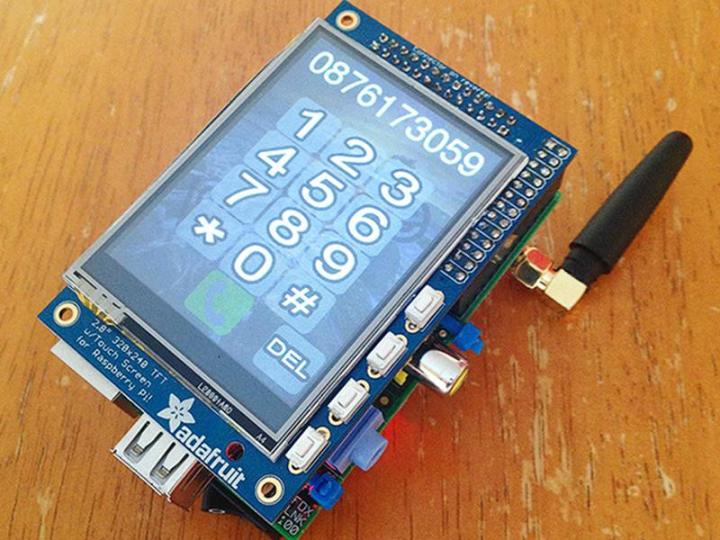
The Raspberry Pi — is there anything it can’t do? The tiny computer has helped inventors and hackers create a media streamer, outer space camera, games console and cocktail-mixing robot in its short lifetime, and you can now add cell phone to that impressive list. Linux software engineer David Hunt has put together a working mobile phone using spare parts and a Raspberry Pi, as demonstrated on his blog.
Hunt, based in Ireland, has been tinkering with the miniature platform for a while — he has previously demoed a Pi-powered RAID server and DSLR attachment, among other projects — but his working cell phone is his most impressive effort yet. In total, the components add up to a bottom line price of $158, if you’re thinking about building your own cell phone.
As you can see from the picture above, the custom-made touchscreen interface is fairly basic, but it does the job. You can only make calls with the PiPhone, so a quick burst of 2048 or a flick through Facebook is out of the question. As well as the Pi and the touchscreen, the device is kitted out with a 2500mAh LiPo battery and a SIM900 GSM/GPRS module.
Watch the video below to see the PiPhone in action. “It’s a bit of a mess, but you wouldn’t actually use it in the real world,” Hunt says, before explaining that heat was the biggest problem he came across. “You can feel it getting a little bit warm. It doesn’t crash or anything, but I’m sure it wouldn’t be good to put it in an enclosure without some sort of heat sink.”
Editors' Recommendations
- Best cell phone plan deals: T-Mobile, AT&T, Verizon, Mint Mobile and more
- It’s 50 years to the day since the first cell phone call
- The best small business cell phone plans
- Is cell phone radiation actually dangerous? We asked some experts
- Here are 10 ways your cell phone carrier is screwing you


